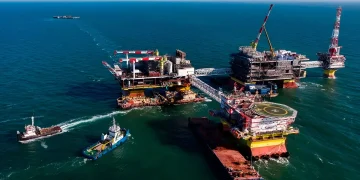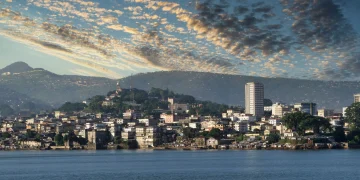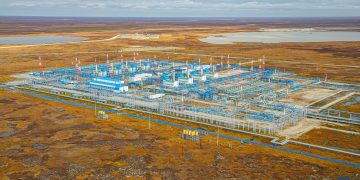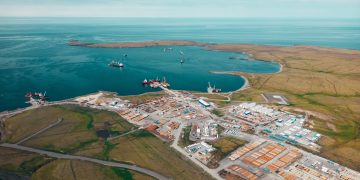Russian Offshore to Open Up?
Ask most people about Russian oil and gas production, and they’re likely to bring up the two giants: Rosneft and Gazprom. But private companies are possibly in a position to see their roles change in the country’s oil landscape, as Rosemary Griffin describes in this week’s Oilgram News column, Regulation and Environment.
Russian officials are considering changing legislation to give privately-owned companies access to the country’s vast but challenging offshore reserves. While the details are still being hashed out, increasing interest in the issue comes amid concerns that state-owned companies will struggle to meet their offshore license obligations and investment commitments due to low oil prices and Western sanctions.
Whereas liberalized access could mark a victory for private companies, led by Lukoil, the economic factors underpinning increased interest (low oil prices) could also prevent them from taking advantage of the new opportunities.
Debate over access to Russia’s offshore reserves is nothing new, with government and company representatives intermittently addressing the issue since the latest change to legislation in 2008. Current regulations restrict offshore exploration and production licenses to state-owned companies with a minimum of five years’ experience working offshore in Russian waters, which effectively mean that only state-owned giants Rosneft and Gazprom are eligible.
Lukoil, as Russia’s most significant independent crude producer, was already conducting work offshore in the Caspian and Baltic Seas when the changes were introduced, and while it was allowed to keep these projects, it has not been eligible for any new licenses.
The company has persistently pushed for equal access and stands to be the principle beneficiary if the changes are approved. Considering it has been blocked from increasing its role in Russia’s offshore for the last seven years, its offshore credentials are impressive. In addition to its operations in the Caspian and Baltic Seas, Lukoil has international experience working offshore West Africa and has a stake in four blocks of the Norwegian section of the Barents Sea.
Lukoil’s calls for change have been backed by many in the sector who criticize the government’s strategy of granting tens of exploration and production licenses to Rosneft and Gazprom, who then only develop a small number of them and freeze progress on the rest.
Rosneft’s ambitious plans to explore in the Kara Sea with ExxonMobil have been a high-profile casualty of Western sanctions, which aimed to halt development of Arctic oil reserves in Russia. Rosneft is now facing the prospect of taking on the financial burden of developing the project independently at a time when its access to Western financing has been seriously restricted, and revenues are down.
While Russia’s overall crude production remained robust in the first quarter, there are serious concerns that economic issues today could sabotage plans to bring new resources onstream to maintain production volumes post 2020.
This is driving calls for other companies to be given the opportunity to develop these resources. Local media reported in late March that the energy, natural resources and economy ministries, alongside Russia’s federal antimonopoly service FAS, have been ordered to prepare proposals on extending access by April 20, and a decision could be taken by the summer.
But the factors behind calls to speed up access to offshore reserves could also hinder private companies from making the most of newly granted access to Russia’s offshore. Analysts believe that oil prices would need to bounce back by around 50% before many of the commercially challenging offshore projects are even remotely viable.
Privately-owned Russian crude producers are as unlikely as Rosneft and Gazprom to commit to any major, risky financial investment while oil prices are low and their access to cutting-edge Western technology is restricted by sanctions.
With the Arctic an emotive topic to many, ecological concerns and protests are another risk private companies may not be willing to bear.
There is also the question of what is left for the taking, after the bulk of offshore licenses have almost all already been granted to the big two. Some estimates indicate that Rosneft and Gazprom may already control as much as 80% of Russia’s offshore resources.
The idea of liberalizing access to Russia’s offshore is still at a pre-draft stage, and talk of details is highly speculative at this point; however, the natural resources ministry has previously suggested ways to incorporate private companies into the offshore sector.
It proposed creating a resource bank of halted development projects that could be reassigned to other companies if Rosneft and Gazprom turned down the chance to develop them.
It has also raised the possibility that private companies could be granted offshore exploration licenses, with the state-owned companies given an option to take a 50% plus one share stake if a major field is discovered.
Optimists on opening up the reserves are hoping such a move may signal a new willingness on the part of Russian authorities to make decisions that may go against Rosneft and Gazprom’s immediate interests, but which could be a catalyst in ushering in a new era of Russia’s hydrocarbon development.






